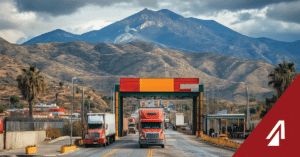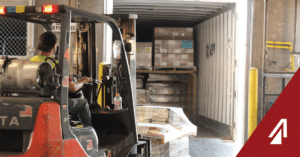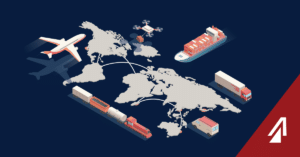Mexico continues to play a crucial role in North American trade, with its ports functioning as essential channels for cross-border shipping. However, Mexico’s ports face ongoing issues such as congestion, limited infrastructure, and bureaucratic delays that significantly affect supply chains and logistics costs. With the recent election of Claudia Sheinbaum as Mexico’s first female president, the industry hopes her administration will address these pressing concerns. Meanwhile, the results of the U.S. election and evolving trade policies add layers of complexity, shaping the future of cross-border commerce and impacting logistics on a broader scale.
Port Congestion, Infrastructure, and Policy Shifts
Major Mexican ports like Manzanillo and Veracruz are increasingly congested, straining an already limited infrastructure. Industry sectors that depend on the seamless flow of goods, including automotive, consumer goods, and manufacturing, are feeling the effects of these bottlenecks. Delays in cargo processing, for example, contribute to missed deadlines, higher logistics costs, and reduced reliability, which in turn causes ripple effects throughout North American supply chains. As President Sheinbaum takes office, her administration’s approach to economic and infrastructure reforms will be critical in modernizing Mexico’s ports and reducing logistics and trade challenges.
On the U.S. side, the recent election results could signal changes in trade policies and infrastructure initiatives that affect cross-border operations with Mexico. Any shifts in trade tariffs, border policies, or environmental regulations under the new administration could impact import/export costs, clearance times, and the ease of goods movement through North American corridors.
The Impact of Sheinbaum’s Policies on Trade and Port Development
President Sheinbaum’s leadership, following the policy path of her predecessor, López Obrador, signals a continued focus on infrastructure and economic reforms under Mexico’s “Fourth Transformation.” As a scientist and former mayor of Mexico City, Sheinbaum brings an analytical approach that includes sustainable development. Her administration’s emphasis on energy efficiency and sustainability could introduce greener port operations and more advanced handling systems, both of which are crucial for easing logistical bottlenecks and aligning Mexico’s infrastructure with the demands of high-volume trade.
Sheinbaum’s policies may also address customs inefficiencies, simplifying procedures that have historically delayed cargo movement. Improved customs processes and potential digital upgrades could lower the administrative burden on businesses, fostering faster and more predictable trade flows. By advancing these reforms, the Sheinbaum administration could substantially reduce logistics costs and transit times for companies that depend on Mexican ports, providing more stability in cross-border trade.
U.S.-Mexico Trade: Anticipated Changes Post-Election
The U.S. election results will likely influence North American trade policies, impacting logistics and supply chains reliant on cross-border operations with Mexico. For instance, any shifts in U.S. trade policy that favor nearshoring or impose additional tariffs could redefine supply chain strategies for companies relying on Mexican manufacturing. Changes in border policies or enhancements in U.S. port infrastructure could also create a more competitive environment, as companies may need to weigh U.S. and Mexican port efficiencies more carefully when making routing decisions.
Furthermore, potential new policies aimed at promoting economic cooperation with Mexico could foster joint infrastructure initiatives, including investments in border facilities and ports. Such collaborations could mitigate challenges for supply chains reliant on Mexican imports, fostering a smoother flow of goods through North American trade corridors.
Preparing for Ongoing Changes in Trade and Logistics
Given the shifting landscape in the U.S. and Mexico, companies engaged in cross-border trade should remain proactive and flexible. As infrastructure and policy updates unfold, businesses can benefit from collaborating with logistics partners to explore alternative routing options, monitor real-time visibility tools, and build additional lead times into their operations to navigate potential delays.
By staying informed on policy changes and Sheinbaum’s potential impact on Mexican ports, businesses can better adapt to North America’s evolving trade and logistics environment. The future holds the promise of streamlined operations and improved efficiencies, yet companies must remain vigilant and ready to adjust their strategies to minimize risks and maximize resilience in an increasingly interconnected and dynamic marketplace.
ProTrans has been operating in Mexico for more than 30 years, serving as a significant source in cross-border transportation. We will continue to monitor developments and initiatives on both sides of the border that could potentially impact our customers. Reach out today for assistance with your cross-border transportation and logistics needs.



